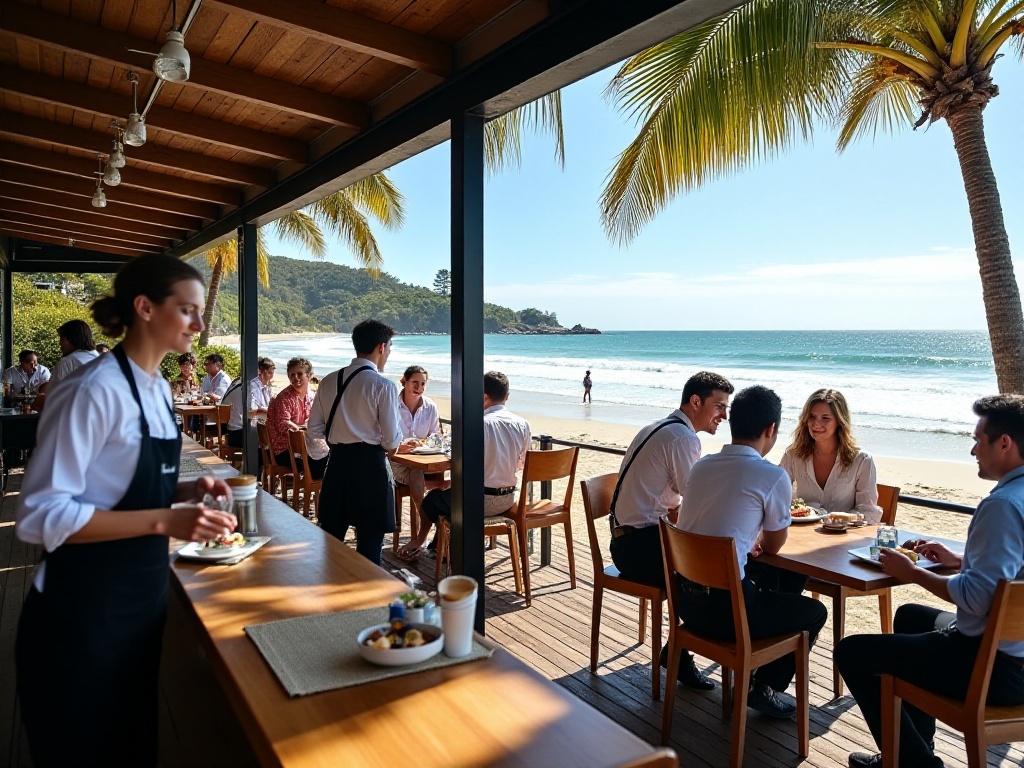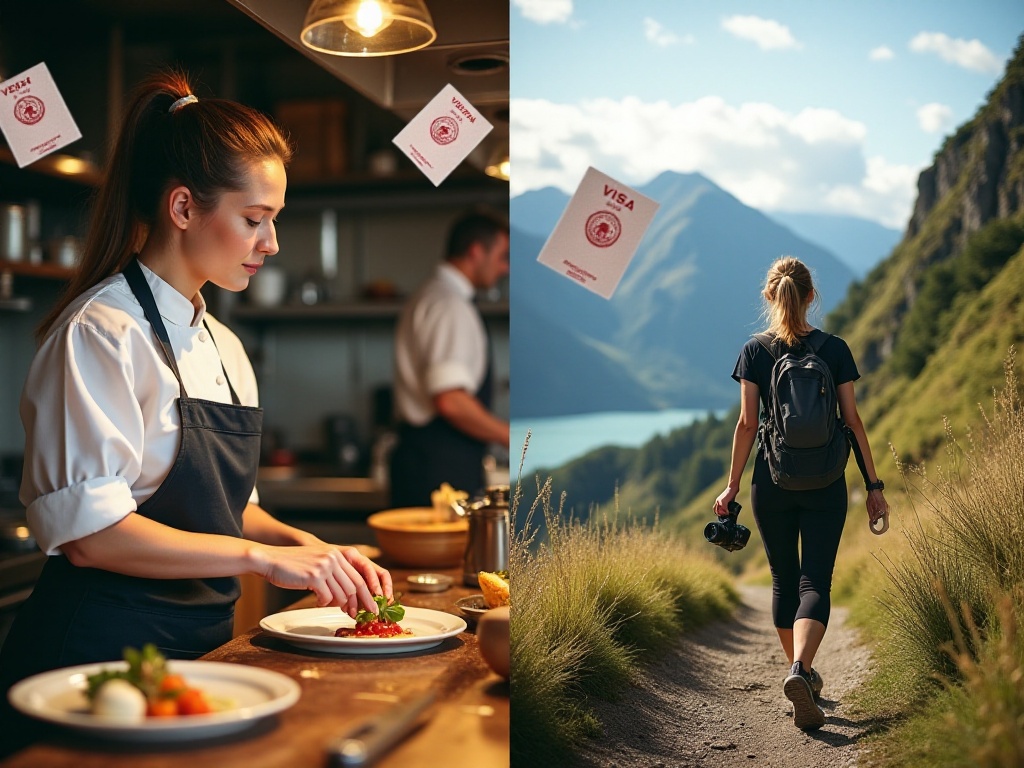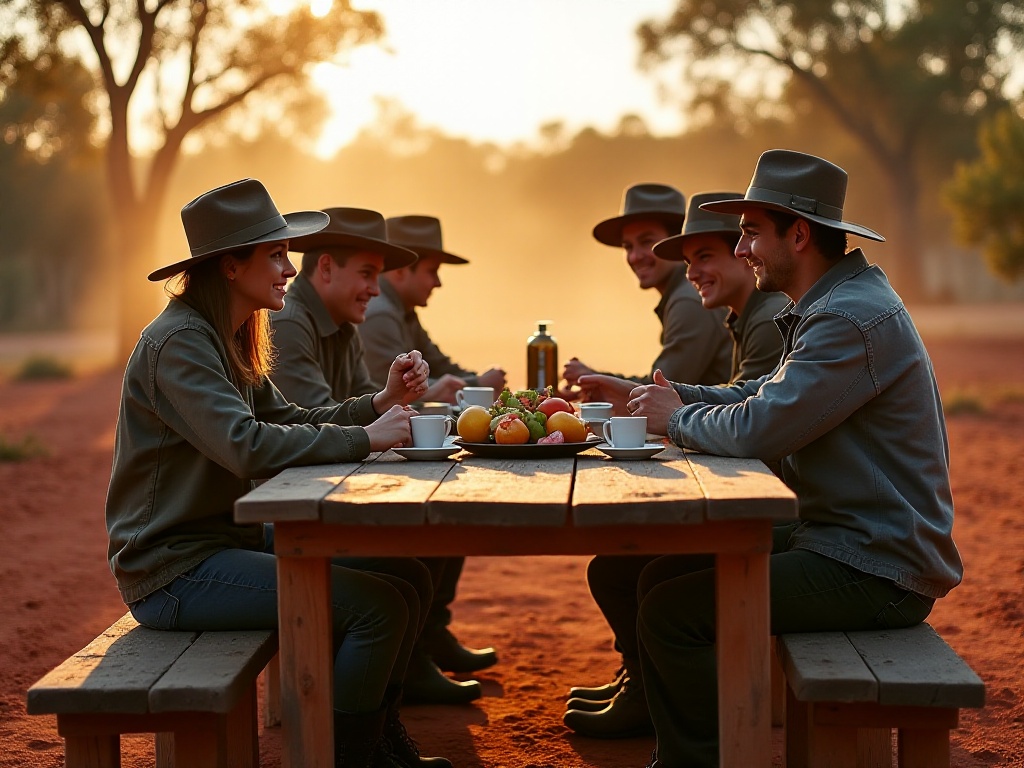
First Impressions of Australia
In the winter of 2023, looking out from the airplane window, the Sydney Opera House gleamed like pearl in the sunlight, while the Harbour Bridge stretched across the bay like a steel rainbow. Walking out of the airport with my overweight luggage, I was greeted by the rich scent of eucalyptus trees and a subtle ocean breeze. The kangaroo warning signs and various road markers everywhere reminded me: this is the legendary "Land of Kangaroos."
The Australian Working Holiday Visa has long been highly sought after by many young people. From submission to approval, I waited exactly two months. During this time, I checked my email daily, afraid of missing any important notifications. According to the latest data from the Australian Department of Immigration, the number of approved working holiday visas in the 2022-2023 fiscal year reached a new high, exceeding 120,000. Notably, the proportion of Asian applicants has been increasing yearly, accounting for 45% of total applications. This indicates that more young Asians are becoming interested in and aspiring to visit this magical land.
During my first week in Sydney, I was deeply moved by the city's inclusivity. You can see faces from different countries everywhere on the streets, with various skin colors, languages, and cultures coexisting harmoniously. During the day, you can sunbathe and surf at Bondi Beach; at night, enjoy international cuisine at Darling Harbour; on weekends, you can go hiking in the Blue Mountains National Park to admire the magnificent natural scenery.
About the Visa
Applying for an Australian working holiday visa is like playing a puzzle game that requires attention to detail and patience. The 417 visa and 462 visa are the two main options, and your choice depends on your nationality. The 417 visa covers multiple countries including the UK, France, Germany, while the 462 visa is for applicants from specific countries like China, the US, and Singapore.
The visa application process isn't actually complicated, but every step needs to be taken seriously. First is the age requirement, 18-30 years old (extended to 35 for some countries) is considered the golden age period when people are most adventurous. Financial proof is another key point - it's recommended to prepare proof of at least AUD 5,000 in savings to ensure you have enough living expenses before finding work.
The English language requirement isn't strict - basic daily communication ability is sufficient. However, if you want to find better job opportunities here, improving your English is definitely a wise choice. I've seen many friends improve their broken English significantly through their work experience in Australia.
The second-year visa extension is an option many working holiday makers consider. To get this opportunity, you need to complete at least 88 days of farm work in designated regions. Though tough, this experience is definitely worth it. Imagine picking fruits on vast farms, working alongside young people from around the world, and gazing at the brilliant Southern Hemisphere stars at night - this kind of experience is priceless.
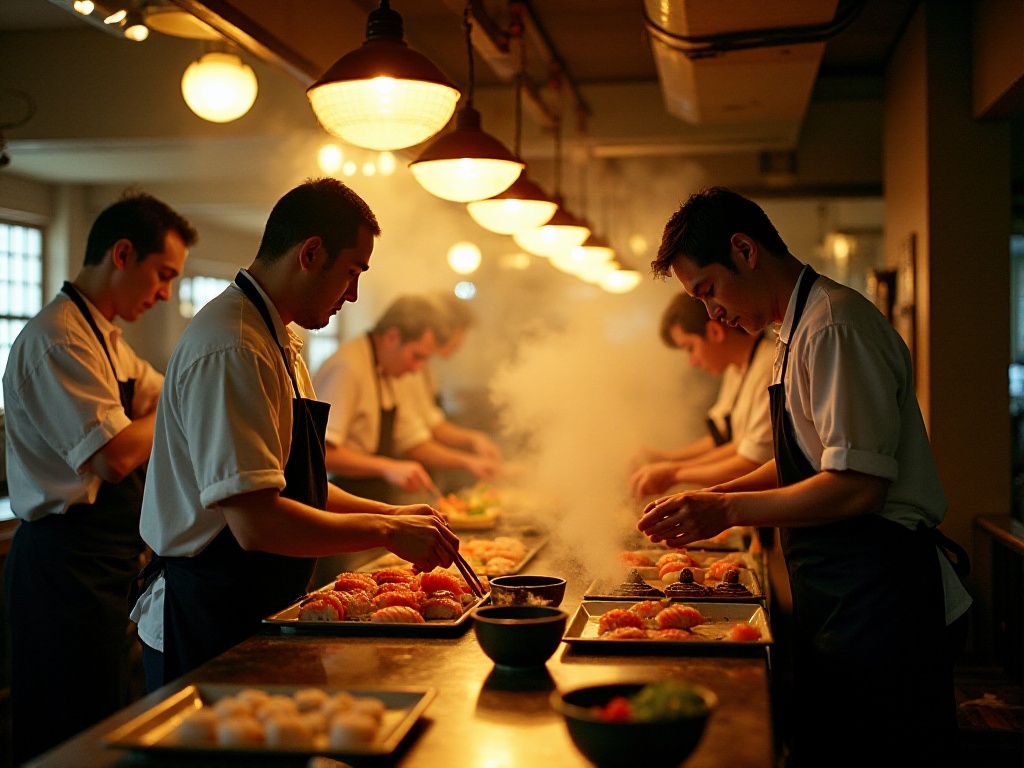
Finding Work
Finding work in Australia is like treasure hunting, with each attempt full of unknowns and possibilities. I'll never forget working at that coffee shop in Melbourne. I knew nothing at first and took forever to learn the ordering system. But the cafe owner was very patient, teaching me hands-on how to make various coffees and interact with customers. Though it only paid 21 AUD per hour, this experience gave me a deep understanding of Australian workplace culture.
Australia offers a wide variety of job opportunities. Farm work, though tough, pays well, with picking season hourly rates reaching up to 30 AUD. I know a Korean girl who worked at a vineyard in Victoria for three months - not only did she earn good money, but she also learned about wine knowledge and now runs a small wine import company in Seoul.
The food service industry in cities is also a popular choice for working holiday makers. I worked as a server at a Japanese restaurant in Sydney, earning 25 AUD per hour, interacting with different customers daily, with plenty of opportunities to practice English. The most interesting part was occasionally learning some Japanese from Japanese customers.
Tourism industry jobs are also attractive. My roommate works as a diving instructor at the Great Barrier Reef. Although getting certified was expensive, they earn 4000-5000 AUD monthly while working in a beautiful underwater world - a perfect work experience.
There are many ways to find jobs. Besides traditional job websites, classified ad sites like Gumtree often have job listings. Social media working holiday groups are also good information sources. I found my first cafe job through a Facebook group.
Most importantly, be proactive. Don't be shy - take your resume directly to places you're interested in, as face-to-face communication often has a higher success rate. I got my current job by asking in person - the boss appreciated my proactive attitude.

Daily Life
Life in Australia is like an exciting movie with new stories happening every day. My apartment houses young people from around the world, and the kitchen becomes a mini food festival on weekends. My French roommate makes authentic crepes, the Brazilian girl's barbecue fills the air with amazing aromas, and the Korean guy's kimchi soup is exceptional. We often share foods and cultures from our countries, making life full of cross-cultural fun.
Regarding living costs, careful budgeting is necessary. In big cities like Sydney, rent is the biggest expense. I currently share a two-bedroom apartment with three roommates, paying 250 AUD weekly including utilities. Shared housing not only saves money but also helps make friends - why not?
Groceries in Australia aren't actually expensive - the key is knowing where to shop. I usually buy a week's worth of groceries at Victoria Market on weekends, where produce is both fresh and affordable. Cooking for yourself saves money and ensures healthy eating. When I first arrived, I couldn't even fry an egg without burning it, but now I can prepare decent meals.
For transportation, I got a transit card, spending about 45 AUD weekly. Sydney's public transport system is well-developed, with convenient buses, trains, and ferries. For weekend trips to farther places, sharing a rental car with friends saves money while enjoying the scenery.
Online shopping is also well-developed in Australia. I often compare prices online for household items. Subscribing to supermarket membership programs brings regular discount information. These small details add up to significant monthly savings.
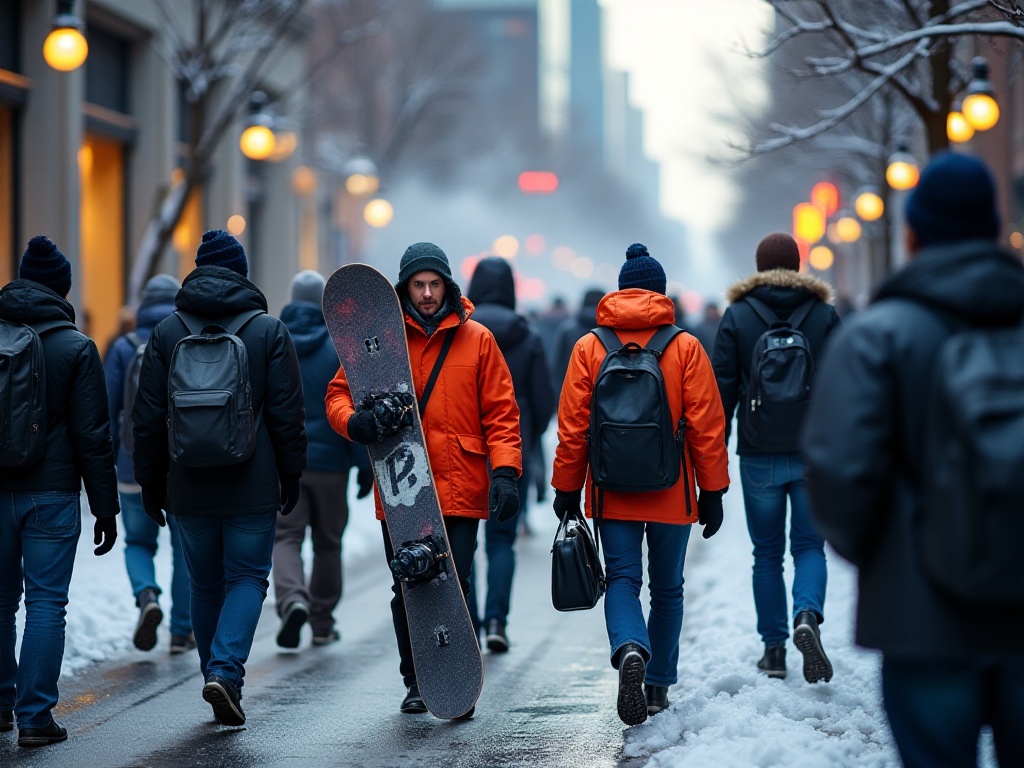
Valuable Gains
This year in Australia has brought me more than just numbers in my bank account - it's given me intangible, lifelong wealth. According to Tourism Australia's survey, over 80% of working holiday makers believe this experience greatly improved their various abilities. I completely agree.
First is language improvement. When I first arrived, my English was stumbling, but now I can chat freely with friends from various countries. Professional workplace vocabulary, everyday slang, and even uniquely Australian expressions have unconsciously become part of my language repertoire.
The improvement in independent living skills is also obvious. From initially not even being able to find the supermarket to now handling various life issues skillfully; from being afraid to go out alone to now planning solo long-distance travels. These changes have made me increasingly confident.
Professional skill accumulation is also considerable. Experiences in different jobs taught me how to interact with people, solve problems, and stay calm under pressure. These are all valuable experiences useful after returning home.
Most precious are the unforgettable friendships. Friends from different countries, though culturally diverse, have built deep friendships through shared experiences. Now my social circle spans the globe - it's truly amazing.
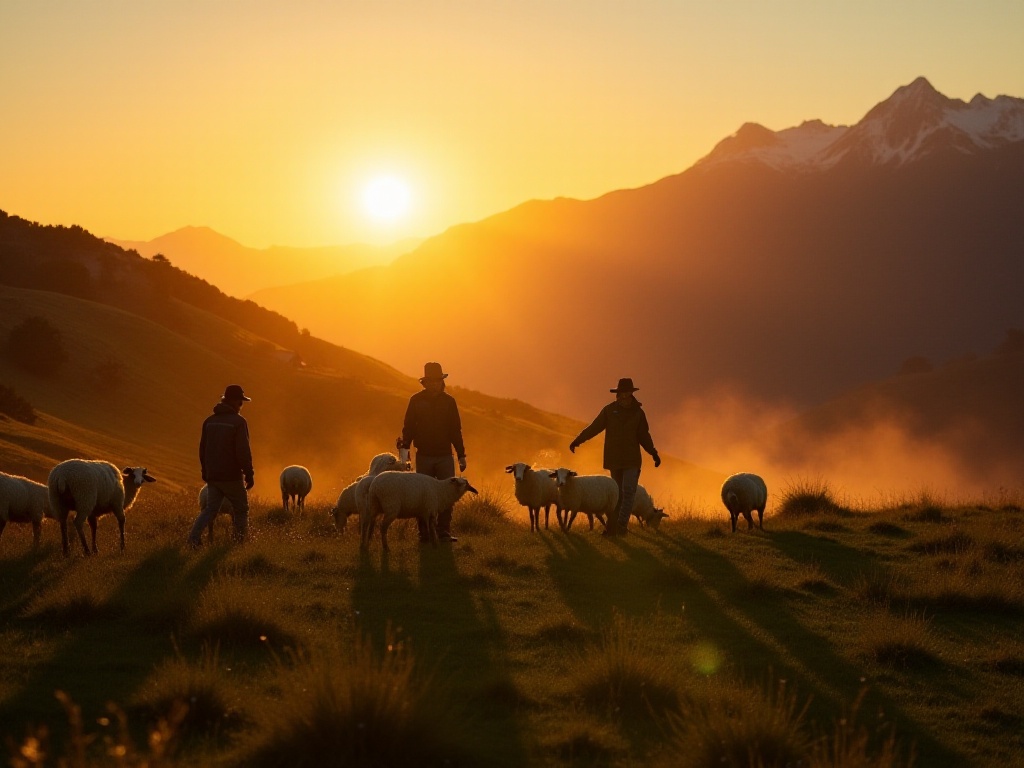
Advice to Share
For those wanting to do a working holiday in Australia, I advise thorough preparation. First is mental preparation - recognize this isn't just a trip but a life experience requiring effort. You might face language barriers, job-hunting challenges, and culture shock. But these challenges are opportunities for growth.
Before departing, make detailed plans. Prepare visa applications early with complete materials. Financially, besides the required 5000 AUD, it's better to prepare extra for initial expenses.
Consider accommodation in advance. Book short-term housing online for the first week, then view long-term options in person. Many newcomers have learned this lesson the hard way, so definitely inspect properties before signing contracts.
For work, research Australian workplace culture and job-seeking channels beforehand. Prepare an Australian-style English resume and collect information about desired jobs. If you have special skills like barista or lifeguard certifications, consider obtaining them in advance.
Most importantly, maintain an open and positive attitude. Australia is a land of opportunities - if you're willing to put in effort, you'll definitely create your own wonderful story.
Everyone's working holiday experience is unique. Maybe you'll experience tough but fulfilling harvest life on farms, maybe you'll experience diverse workplace culture in cities, maybe you'll encounter life's most beautiful scenery at tourist destinations. Whatever happens, it will be your life's most unforgettable experience.
While you're young, set out with your dreams. On this vast land, infinite possibilities await you. Years later, looking back, you'll surely be proud of this decision.
Next
The Great Resurgence: International Business Travel's Triumphant Return
In the wake of a global pandemic that brought the world to a standstill, a new chapter in international business travel is unfolding. As borders reopen and economies rebound, the corporate world is witnessing a renaissance of global mobility, driven by an insatiable appetite for face-to-face interactions and the irreplaceable value of in-person connections.
Complete Guide to New Zealand Working Holiday: How to Exchange Work for a Deep Travel Experience
A comprehensive guide to working holiday programs, covering core concepts, visa requirements, eligibility criteria, and practical applications with detailed examples from Australia and New Zealand working holiday schemes
Complete Guide to Working Holiday Visas: Travel the World While Earning Money - A First Travel Guide for Young People
A comprehensive guide to Working Holiday programs, covering visa requirements, popular destinations including Australia and New Zealand, employment opportunities, and support services for participants aged 18-30
Next

The Great Resurgence: International Business Travel's Triumphant Return
In the wake of a global pandemic that brought the world to a standstill, a new chapter in international business travel is unfolding. As borders reopen and economies rebound, the corporate world is witnessing a renaissance of global mobility, driven by an insatiable appetite for face-to-face interactions and the irreplaceable value of in-person connections.
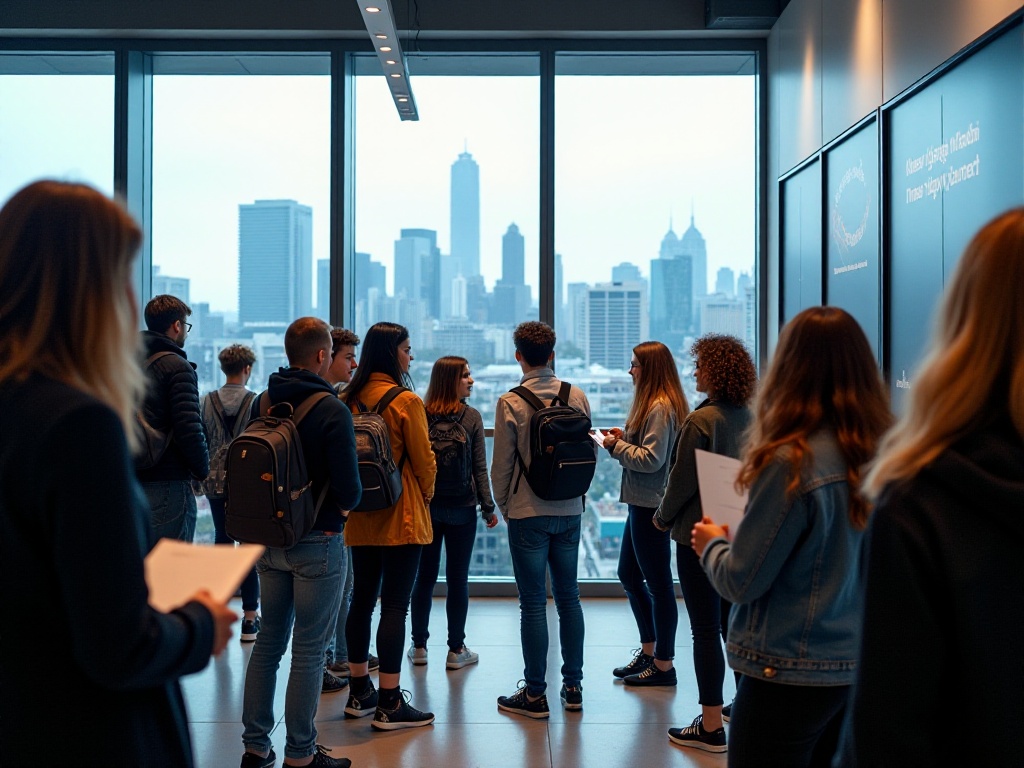
Complete Guide to New Zealand Working Holiday: How to Exchange Work for a Deep Travel Experience
A comprehensive guide to working holiday programs, covering core concepts, visa requirements, eligibility criteria, and practical applications with detailed examples from Australia and New Zealand working holiday schemes
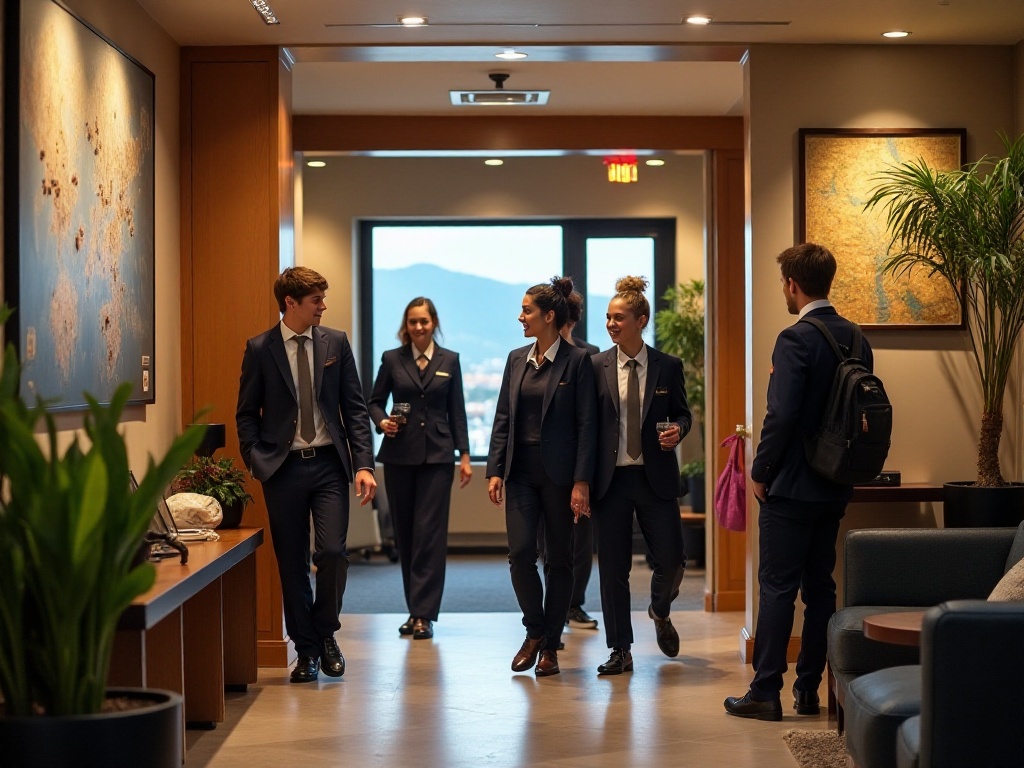
Complete Guide to Working Holiday Visas: Travel the World While Earning Money - A First Travel Guide for Young People
A comprehensive guide to Working Holiday programs, covering visa requirements, popular destinations including Australia and New Zealand, employment opportunities, and support services for participants aged 18-30

